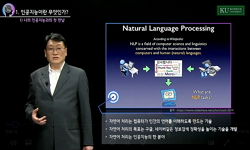In recent years, human factors in cooperative computation have been studied increasingly, since various application contexts are complicated and highly related to the knowledge of subject-matter experts such as health care, military, and artistic desi...
http://chineseinput.net/에서 pinyin(병음)방식으로 중국어를 변환할 수 있습니다.
변환된 중국어를 복사하여 사용하시면 됩니다.
- 中文 을 입력하시려면 zhongwen을 입력하시고 space를누르시면됩니다.
- 北京 을 입력하시려면 beijing을 입력하시고 space를 누르시면 됩니다.
A Knowledge-Based Human-Computer Interaction System for the Building Design Evaluation Using Artificial Neural Network
한글로보기https://www.riss.kr/link?id=A109103000
-
저자
Zhao Dongmiao (Innovation institute for Sustainable Maritime Architecture Research and Technology, Qingdao University of Technology, Qingdao, China) ; Liu Yufeng (School of Information and Control Engineering, Qingdao University of Technology, Qingdao, China) ; Zeng Guangzhao (Innovation institute for Sustainable Maritime Architecture Research and Technology, Qingdao University of Technology, Qingdao, China) ; Wang Xingtian (Innovation institute for Sustainable Maritime Architecture Research and Technology, Qingdao University of Technology, Qingdao, China) ; Miao Sheng (School of Information and Control Engineering, Qingdao University of Technology, Qingdao, China) ; Gao Weijun (Innovation institute for Sustainable Maritime Architecture Research and Technology, Qingdao University of Technology, Qingdao, China)
- 발행기관
- 학술지명
- 권호사항
-
발행연도
2023
-
작성언어
English
- 주제어
-
자료형태
학술저널
-
수록면
1-17(17쪽)
- DOI식별코드
- 제공처
-
0
상세조회 -
0
다운로드
부가정보
다국어 초록 (Multilingual Abstract)
In recent years, human factors in cooperative computation have been studied increasingly, since various application contexts are complicated and highly related to the knowledge of subject-matter experts such as health care, military, and artistic designing. Due to the difficulty of knowledge elicitation and representation, human computation always faces the challenge of human-computer interaction issues. In this regard, this paper presents a human-computer interaction system based on subject knowledge to assess the influence of architecture on urban environments. Human computation is significant in generating reasonable and effective grades based on both subjective feelings and objective indicators, avoiding subjectivity and discreteness in traditional expert reviews. The artificial neural network algorithm takes part in kernel modeling to represent the comprehensive expert knowledge and calculate scores based on objective indicators. To evaluate the usability and effectiveness of the presented methodology, a dataset including 22 accomplished projects was applied and validated. The mean absolute error of the validation data was 5.53, which shows that the presented model can achieve a high accuracy. Based on the established model, two new architectural projects in the research area were evaluated and studied. The evaluated scores tallied 68 and 73, authentically reflecting the performance of the design schemes.
동일학술지(권/호) 다른 논문
-
Supply Chain Management Using an Industrial Internet of Things Hyperledger Fabric Network
- 한국컴퓨터산업협회
- Rehan Muhammad
- 2023
-
Music Classification Scheme Based on EfficientNet-B3
- 한국컴퓨터산업협회
- Park Kyuwon
- 2023
-
TEPDA: A TTP-Free, Efficient, and Privacy-Preserving Framework with Data Authenticity
- 한국컴퓨터산업협회
- Chen Jiahui
- 2023
-
Effective Security Monitoring using Efficient SIEM Architecture
- 한국컴퓨터산업협회
- Sheeraz Muhammad
- 2023




 KCI
KCI


